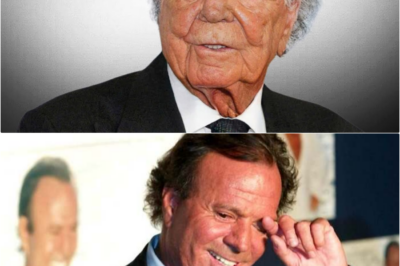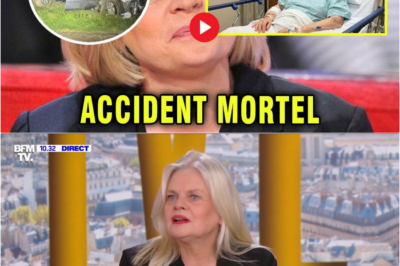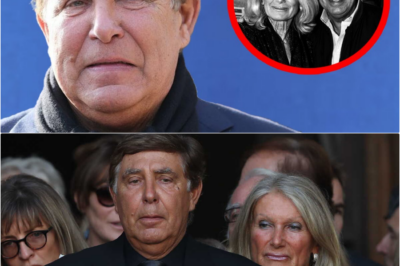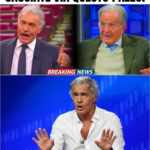President Donald Trump, just six weeks into his term, continues to secure significant victories. According to reports, he achieved two major successes today. First, Honda has decided to manufacture its next Civic model in Indiana instead of Mexico, marking a significant win for American manufacturing. Second, President Trump announced a $100 billion investment in the U.S. from Taiwanese semiconductor giant TSMC. This follows Nissan’s decision to build a new plant in the U.S. rather than in Mexico, along with Apple’s $500 billion commitment to constructing a massive facility in Texas that is expected to create thousands of high-paying jobs.
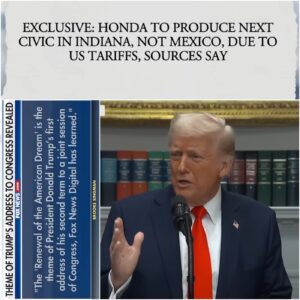
As President Trump prepares to address Congress tomorrow night, the central theme of his speech will be the renewal of the American Dream. White House Press Secretary Karoline Leavitt joined a discussion on this topic, emphasizing the administration’s economic achievements and policy priorities.
She highlighted the positive impact of tariffs, arguing that they have successfully brought manufacturing jobs back to the U.S. and protected critical industries. Leavitt reinforced Trump’s commitment to making America the world’s leading manufacturing superpower. She pointed out that past political leaders had failed to defend American workers, allowing other nations to exploit trade agreements at the country’s expense.
A key focus of the administration’s trade policies has been addressing the fentanyl crisis. New tariffs on Mexico, China, and Canada—10% on China and 25% on both Mexico and Canada—are intended to pressure these countries to take stronger action against the illegal drug trade. Leavitt stated that fentanyl, largely produced in China and smuggled through U.S. borders, is the leading cause of death among Americans aged 18 to 34. She stressed that every American likely knows someone affected by this crisis, making the administration’s tough stance on trade necessary.
Sean Hannity pointed out that Mexico has recently increased its cooperation with the U.S. by handing over cartel leaders, possibly in response to these tariffs. Leavitt acknowledged the shift but noted that under the previous administration, large quantities of fentanyl continued to enter the country, with enough last year alone to potentially kill millions of Americans. She argued that these countries must be held accountable for their role in the crisis and praised Trump’s actions as necessary steps to curb the epidemic.
Shifting to foreign policy, Leavitt discussed President Trump’s recent meeting with Ukrainian President Volodymyr Zelenskyy. She described Zelenskyy’s attitude as ungrateful toward American taxpayers. She expressed frustration over the billions of U.S. dollars being sent abroad while domestic problems persist. According to Leavitt, Trump remains focused on negotiating peace, but Zelenskyy appears unwilling to engage in discussions aimed at ending the conflict with Russia.
Leavitt, the youngest White House Press Secretary in history, also reflected on her role. She credited her ability to communicate effectively to her faith and natural talent for public speaking. She emphasized that President Trump’s transparency and direct approach make her job easier, as his actions align with his promises.
Finally, she addressed media relations, noting that journalists appreciate the unprecedented level of access President Trump provides. Unlike his predecessor, who was more selective in answering questions, Trump frequently engages with the press and allows them to ask about a wide range of topics, reinforcing his commitment to transparency.
News
Nolwenn Leroy : Les Révélations Poignantes de ses 42 ans sur “l’Amour de sa Vie”
Dans l’univers parfois impitoyable du show-business français, rares sont les artistes qui parviennent à maintenir une frontière étanche entre les…
Julio Iglesias à 81 ans : Entre aveux sincères, secrets de famille et vérité sur sa santé, la légende se livre enfin
Julio Iglesias n’est pas seulement une voix ; il est un mythe vivant, une icône de la romance qui a…
Isabelle Nanty : Le combat secret d’une icône entre la vie et la mort après une hospitalisation critique
Le monde du cinéma français a retenu son souffle. Isabelle Nanty, figure emblématique et solaire de nos écrans, a traversé…
CLASH EXPLOSIF : Louis Boyard et Apolline de Malherbe, le duel qui a embrasé le direct !
L’arène médiatique a tremblé ce matin. Ce qui devait être une interview politique classique s’est transformé en un véritable champ…
Jean-Pierre Foucault en deuil : Les adieux déchirants à Marie-José Tramoni, la seule femme qu’il ait jamais épousée
Le paysage médiatique français est en émoi. Derrière l’image de l’animateur infatigable, toujours prêt à distribuer sourires et bonne humeur…
Sarah Knafo “rhabille” la gauche : le choc des vérités sur le Venezuela !
Le séisme politique : Sarah Knafo face à l’aveuglement idéologique Le paysage médiatique français vient d’être le théâtre d’une déflagration…
End of content
No more pages to load


